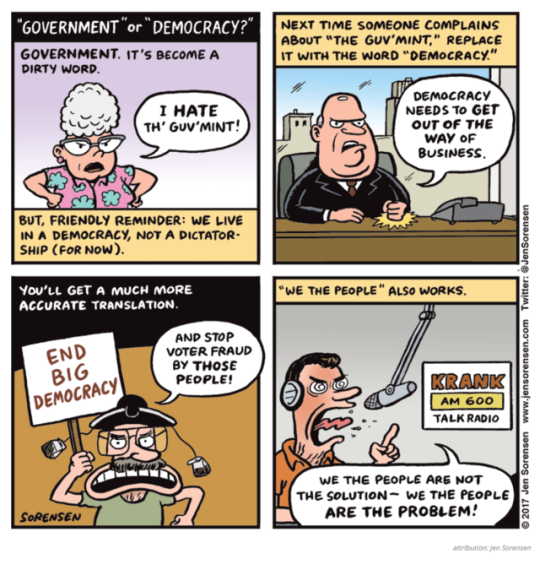In which case, corporations, teachers, doctors, rich people, etc. cannot be trusted either. But you don't rail against those very often (well, maybe teachers sometimes). Power differentials will always exist, government being only one manifestation of that difference.
You'll notice the times I have railed about teachers were when they were exerting
governmental power. And yes, none of those people can be trusted with the level of power that has swollen in our government - because no matter the power of a corporation, government can still Ma Bell it.
As I've said before, World War II probably had a more profound impact on America's rise than the framing of the constitution. I'd also add a very large area of natural resources likely helped as well (which took 100 years to really start exploiting). That said, I agree with the first thing you stated, but that it ALSO requires buy-in from the people.
The US wouldn't have been in as good a position to exploit those resources or fight that war had it been saddled with the same level of bureaucracy then as it is now. For human endeavor to be most effective, it needs to be free to operate in its own self interest - with the caveat that it must not impinge on the rights of other individuals, which is where the necessity for government comes in. But beyond that, you know the old saw about a government being big enough to give you everything also being able to take it, and we're right in the middle of an object lesson at this very moment in what can and will happen when government has too much power - it inevitably gets abused.
It isn't folly for humans to distinguish between "us" and "them," it is biological. Our monkeysphere isn't even big enough to encompass each member of the house of representatives, much less everyone. Our representative form of government helps us deal with that a little, but it doesn't help
them deal with
us.

 I'm still probably trying to tilt windmills.
I'm still probably trying to tilt windmills.







